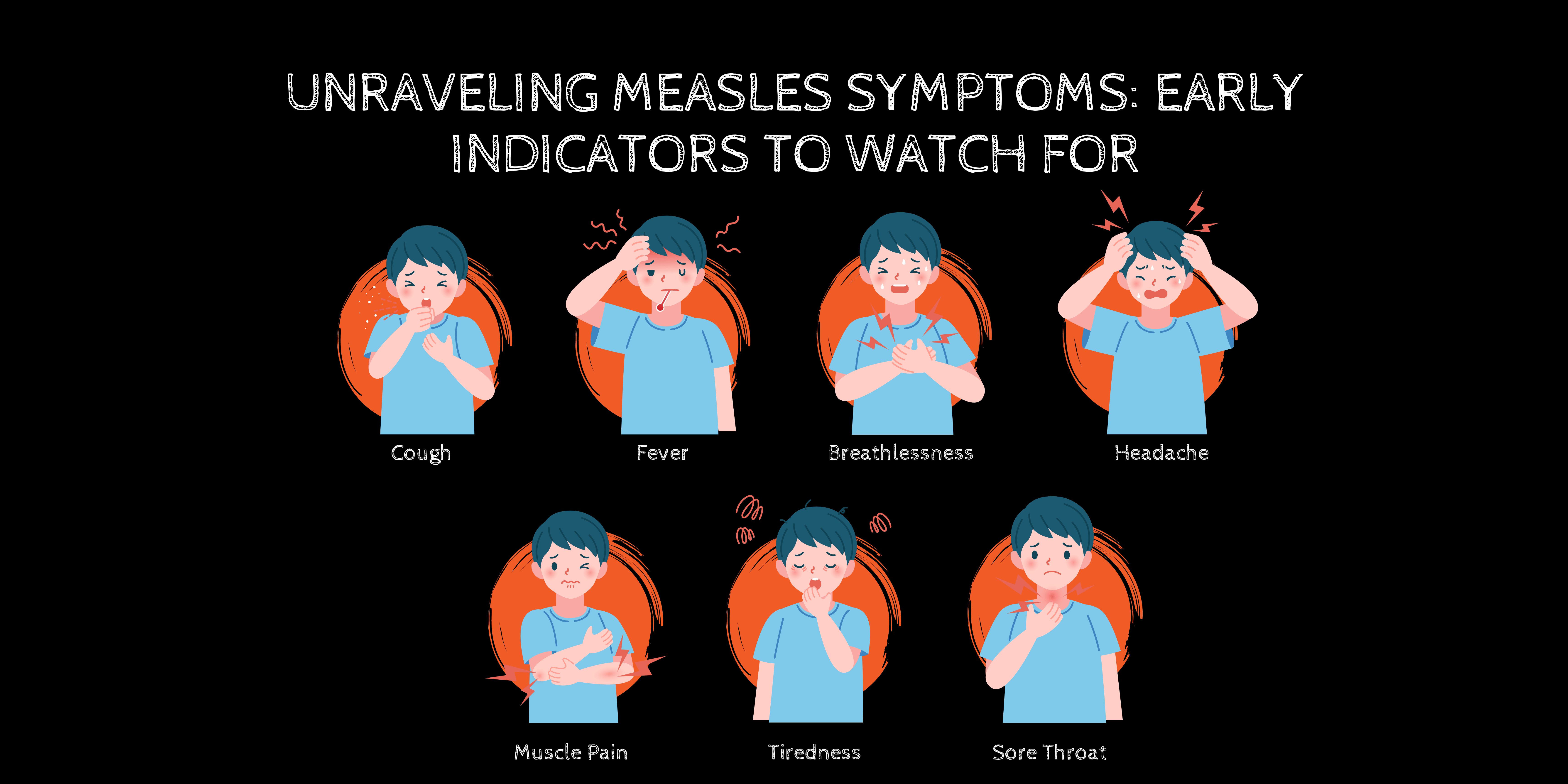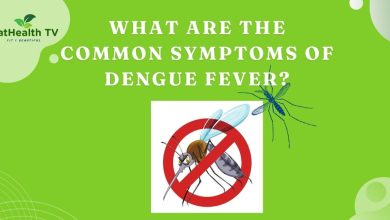Recognizing Measles: Identifying Common Symptoms
The virus that causes measles, also known as rubeola, predominantly affects the respiratory system and is very contagious. Measles symptoms often start to show 7 to 14 days following virus contact. The initial symptoms may resemble those of a common cold or flu, but they gradually worsen over time. Here are the common symptoms associated with measles:

1. Fever: Measles usually starts with a high fever, often exceeding 101°F (38.3°C).
2. Runny Nose: Nasal congestion and runny nose are common early symptoms.
3. Cough: A persistent cough may develop, often accompanied by a sore throat.
4. Sneezing: Sneezing and other cold-like symptoms are common during the initial stages.
5. Red Eyes (Conjunctivitis): The eyes may become red, watery, and sensitive to light. This symptom is known as conjunctivitis.
6. Koplik’s Spots: Small, white spots with a bluish-white center and a red border may appear inside the mouth on the inner lining of the cheek. These are called Koplik’s spots and are considered characteristic of measles.
7. Rash: A red, blotchy rash typically appears a few days after the onset of fever. The rash typically appears on the face before moving to other parts of the body. It may appear as flat red spots or raised bumps and can be itchy.
8. Generalized Body Aches: Muscle pain, body aches, and fatigue are common during the illness.
It’s important to note that measles can lead to serious complications, particularly in young children, pregnant women, and individuals with weakened immune systems. Complications can include ear infections, pneumonia, encephalitis (inflammation of the brain), and in severe cases, death.
If you suspect you or someone else may have measles, it’s important to consult a healthcare professional. Measles can be prevented through vaccination, and individuals who receive the measles vaccine (often given as part of the measles, mumps, and rubella vaccine, or MMR vaccine) are significantly less likely to contract the virus or experience severe symptoms if they do contract it.




